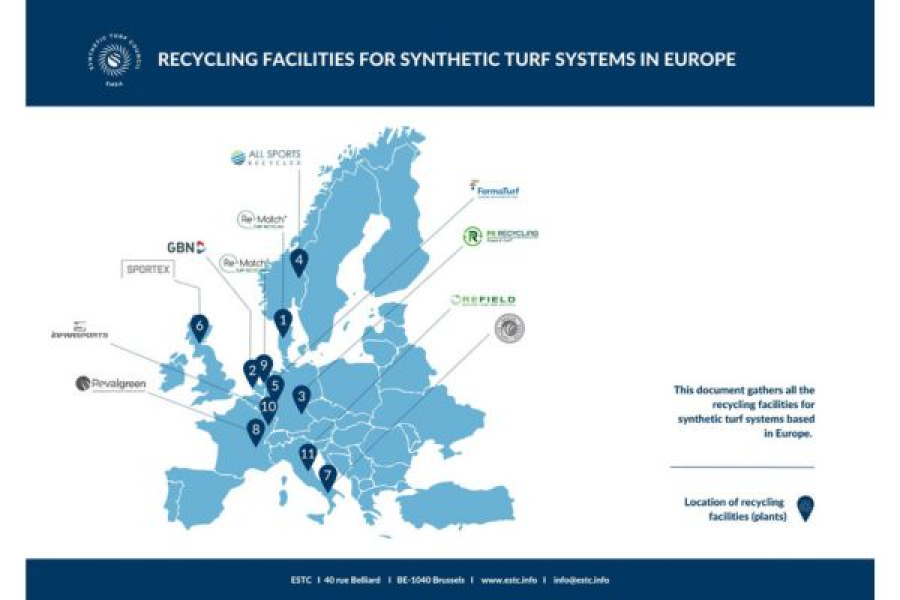ESTC Press Release
In response to an increasing need to dispose of end-of-life synthetic turf in an environmentally-sensitive way, ESTC (the EMEA Synthetic Turf Council) has launched a new guide to recycling facilities across Europe.
The launch of the guide follows over €55 million of investment from ESTC members in new responsible waste management facilities over the last 10 years.
Recognising these developments, ESTC has produced the guide: Recycling Facilities for Synthetic Turf Systems in Europe, for interested parties to easily identify and access services.
The document showcases the locations of 10 recycling facilities across Europe as well as the specific features they offer, which include mobile recycling, on-site separation and the recycling of infill, as well as the recycling of end-of-life synthetic turf.
Collectively, the Europe-wide network of recycling facilities boasts over 4.3 million m2 of processing capacity, which is equivalent to 500,000 full size football pitches.
Furthering its commitment to conscious end of life care, ESTC has also created a supporting guidance document. It highlights current options and best practice and gives an overview on the legal obligations that need to be considered before a surface is disposed of.
ESTC’s document references the EU Waste Framework Directive’s Waste Hierarchy – which aims to ensure that the management of waste is undertaken in the most responsible and sustainable way possible. The hierarchy dictates that recycling is the best option.
Stefan Diderich, Director General at the EMEA Synthetic Turf Council (ESTC) said: “The increase in specialty recycling services across Europe signifies a positive development in sustainability efforts within the industry. This guide is intended to be a valuable resource for members and industry stakeholders. We therefore encourage the industry to share this document with customers, suppliers and other interested parties.”
“Maximising the service life of turf and preserving quality as far as possible is key, but there will come a point when the surface is no longer fit for purpose and needs replacing. That’s when you’ll need to consider options for end-of-life disposal.”
To access the latest version of the guide, please visit: www.estc.info/knowledge-centre/end-of-life/
